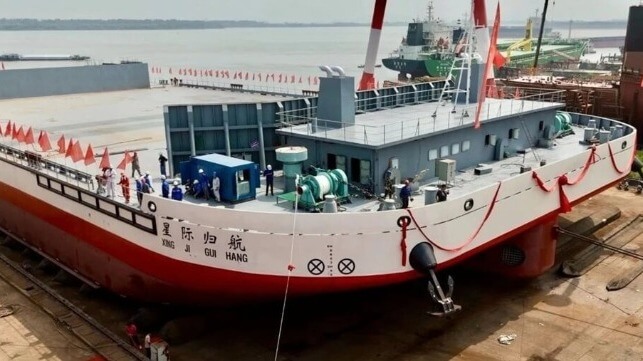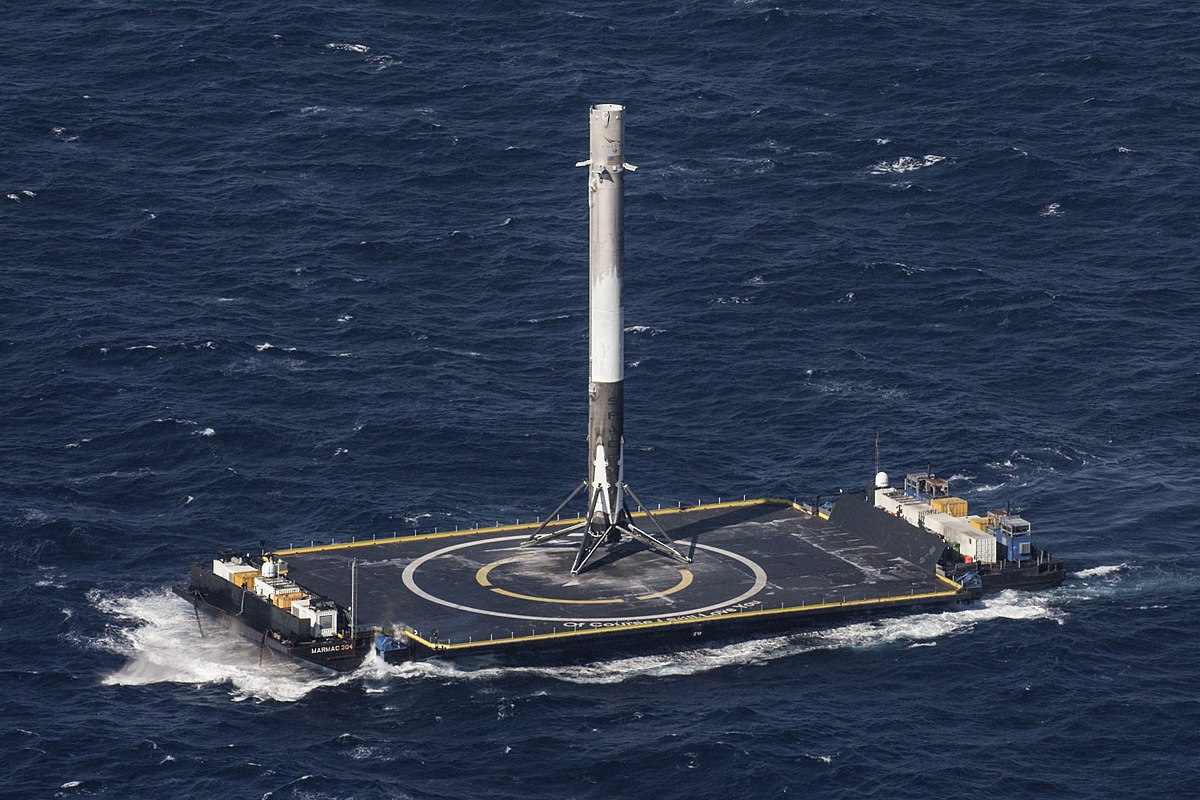iSpace Launches China's First Rocket Landing Barge, Copying SpaceX

Chinese rocket company iSpace has ambitions to run a high-volume commercial launch service, and to get there, it is taking a page from Elon Musk-owned SpaceX: an autonomous landing barge.
Interstellar Glory Aerospace Technology Group (iSpace, not to be confused with Japanese firm iSpace Inc.) has developed a reusable, natural gas-fueled booster rocket in order to keep down launch costs. This parallels SpaceX's successful technology, which has come to dominate the commercial launch industry in the U.S. market. But to reuse the booster, iSpace needs a place to land it. Enter the Xingji Guihang ("Interstellar Return"), a large landing vessel designed to accommodate the iSpace SQX-3 rocket on its return to Earth. The vessel bears resemblance to a deck barge adaptation that SpaceX developed for the same purpose.
 Courtesy SpaceX
Courtesy SpaceX
 Courtesy iSpace
Courtesy iSpace
Jiangsu Runyang Shipbuilding constructed the DP-capable, unmanned-ready barge for iSpace. With a deck measuring about 130 feet by 200 feet and a displacement of 17,000 tonnes, it is large enough to catch a returning booster. It is the fifth vessel of its kind in the world, after SpaceX's deck barges, and it is the first in China. Peng Xiaobo, Chairman of Interstellar Glory, said at the launch ceremony that it would not be the last.
"The 'Interstellar Return' has explored and established a new standard for the integration of my country's aerospace and shipbuilding industries, and has played a . . . leading role in the construction of subsequent carrier rocket recovery ships," he said. "Starting today, my country's offshore engineering ships have added the carrier rocket recovery ship type; the 'Interstellar Return' is the concrete embodiment of our pursuit of dreams of the stars and the sea, which gives us confidence and strength."
After sea trials, the Xingji Guihang will transit to Hainan for comprehensive exercises, followed by entry into commercial service.
